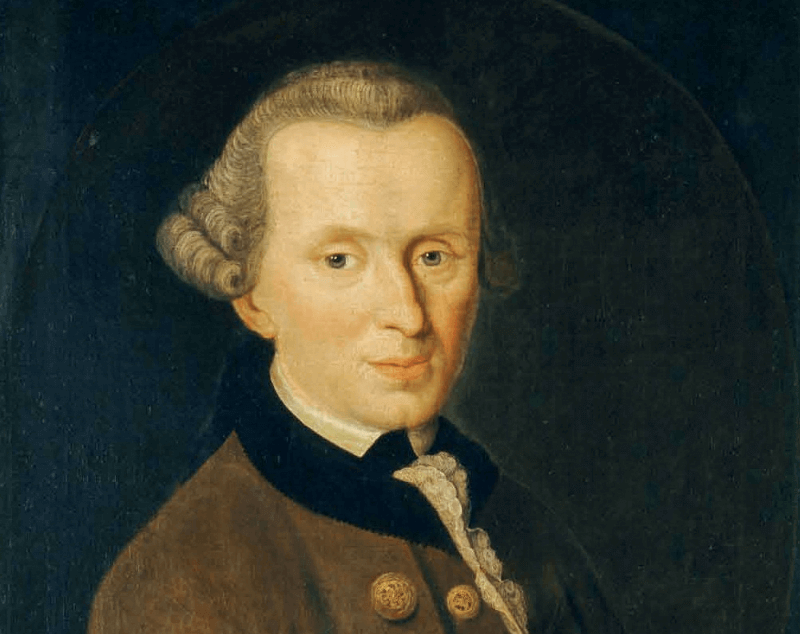The history of philosophy is the history of revolutions: in terms of knowledge, morality, politics, economics, ethics, and there are also admired and hated figures, such as Emmanuel Kant Who does not know the philosopher of Konigsberg?
Many anecdotes are told of him, such as the fact that he was so methodical in his ways that local housewives set the clock by reference to his five hours of walking; biographers also point to his lack of personal ambition and love for where he was born and died, as well as his interest in cultivating these relationships that have been an intellectual stimulus to him.
- We are talking about a lover of physics.
- Mathematics and science in general.
- Passionate about geography.
- Austere in his customs.
- Charismatic teacher: Many students went to Konigsberg to do their courses.
- Where there were rarely free places.
- He loved knowledge and.
- In turn.
- He knew how to plant the seed of that love in his students.
Educated in a religious environment, he lost his mother when he was very young, but she had time to teach him to look and name the stars: a memory in which Kant would have been affectionately inspired by his Critique of Practical Reason. .
The education he received was marked by very strong religiosity, authoritarianism, dogmatism and very strong oppression, which were general norm in the social sphere of the time and, by extension, in the training of students.
“Two things fill my mind with increasing admiration and respect as I think and immerse myself: the starry sky upon me and the moral law in me. These are things I shouldn’t look for outside my visual circle and just speculate on them as if they were shrouded in darkness or found in the transcendent. Do I see them in front of me and connect them directly to the consciousness of my existence?Kant?
In the book Kant: The Copernican Revolution in Philosophy, the author, Joan Solé, refers to the relationship between Kant and Hume, taking as an analogy Charles Chaplin’s film The Child, in which a child breaks the windows of different windows while, soon after, a glassmaker passes to offer his services.
Well, Hume would be the child, destroying much of the theory of knowledge established until then, based mainly on Descartes’ thinking. Would Kant be the stained glassmaker? Kant found the broken glass and offered to repair it, placing instead frosted glass [?]?, while the philosophers realized that they saw the world through translucent glass.
Thus, Kant’s revolution in knowledge was to highlight an idea in which psychology underlies many of his current interventions in different fields: “Our ideas are far from a faithful image of the world. “
For Kant, philosophy may have come out of Plato’s cave, however, after Hume, that didn’t mean we really had enough tools to access the world as it is (noumenon).
On the other hand, it surpasses the relativism that the empiricists hasten: “Kant retains the impression of sensitive perceptions recorded by intuition, but includes it in forms and patterns that are not given by sensitivity, but established by the subject”.
Kant understands ethics as an expression of human rationality. If the curious reader wants to read his original exhibition, will he find it in the Critique of Practical Reason and the Fundamentals of the Metaphysics of Customs?Works to digest much more calmly than this article, although not, of all the works of the philosopher, which most test our understanding of reading. Instead, the categorical imperative represents the maturation of ethics, just as the Enlightenment may have been the maturation of knowledge.
Kant’s ethics are so powerful because it transcends circumstances, individualities, and conditionalities; nor is it an ethic that exhausts a person’s freedom, on the contrary, it is a guarantee, because it makes sense precisely in that freedom. an end in itself, it is not subject to happiness, love or pleasure, it is not a way to feel good, nor is it a comfortable mattress for our self-esteem.
Keeping up with Kant’s formal and universal ethics requires effort, it’s not something that arises naturally. Therefore, our commitment to him is duty, obligation, imperative.
“Act only so that you can expect the maxim of your action to become a universal law. “In other words, your way of doing things will be approved by Kant’s ethics when he satisfies everyone’s desire to do the same. This is Kant copernicana. de revolution: ethics does not exist as a product of God’s freedom, immorality, or existence, but justifies the existence of the rest of the elements.
So, if we look at the world, we will realize that Kant’s ethics are far from prevailing. Power, or aspiration for power, fear of uncertainty, need for security, seem to be much more powerful motivations than acting with the sincere intention that this way of acting is universal.
We welcome visitors, if they bring money to spend; we sign peace when it costs more than war; We bet on the truth if it brings us more than lying. Kant died more than two hundred years ago, but we probably haven’t started understanding his message yet.

